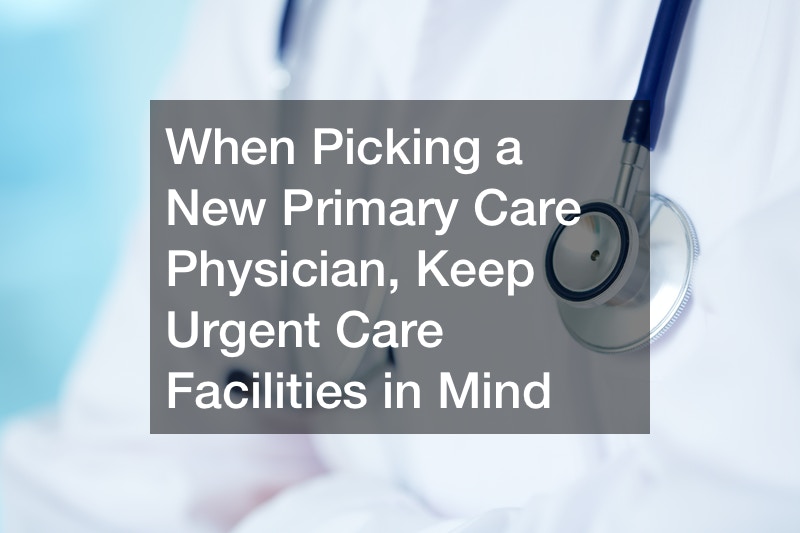When Picking a New Primary Care Physician, Keep Urgent Care Facilities in Mind

Why Do You Need a Family Primary Care Doctor?
Often, your insurance company will require that you’re signed up with a single general practitioner or home primary care doctor to follow your medical treatment. This helps ensure that all of your family medical records are maintained in one location, that any health conditions that you and your family members have are followed carefully, and that any yearly tests that you need are ordered on schedule. If you don’t have a primary care doctor, you can start the search for one by typing “good physician doctor near me” into your favorite search engine.

Healthcare primary care doctors make sure that you and your family have the treatment you need, whether that’s general checkups and medical tests, treating you when you’re sick, or calling in prescriptions for medications. In addition, they can refer you to any specialists that you may need to see for additional care. They often keep full records of all of your treatment, as well, as hospitals and specialists usually send a copy of the treatment documentation to your primary care physician. You can learn more about general practitioners in this article:
Why Do You Need a Family Primary Care Doctor?
Often, your insurance company will require that you’re signed up with a single general practitioner or home primary care doctor to follow your medical treatment. This helps ensure that all of your family medical records are maintained in one location, that any health conditions that you and your family members have are followed carefully, and that any yearly tests that you need are ordered on schedule. If you don’t have a primary care doctor, you can start the search for one by typing “good physician doctor near me” into your favorite search engine.
Healthcare primary care doctors make sure that you and your family have the treatment you need, whether that’s general checkups and medical tests, treating you when you’re sick, or calling in prescriptions for medications. In addition, they can refer you to any specialists that you may need to see for additional care. They often keep full records of all of your treatment, as well, as hospitals and specialists usually send a copy of the treatment documentation to your primary care physician. You can learn more about general practitioners in this article:

Finding a doctor can be difficult, especially if you are moving up from your pediatrician, or moving to a new area of the country and aren’t familiar with the doctors in that area. How to choose a primary care physician can be a difficult and puzzling endeavor.
In addition to dealing with how to choose a primary care physician, you might want to find the closest urgent care facility to your house. With only 29% of primary care physicians offering after hours care, this can be a great resource. A 24 hour urgent car facility can be a great fall back if you need immediate help and can’t make it to the hospital. 24 hour walk in clinics can also be a great resource after hours, when your primary care physician is not available. They also provide lab work and x-rays sometimes. One of the best uses for an urgent care facility is to deal with a medical issue that is not serious enough for a hospital. Urgent care facilities generate about $14 billion in revenue each year. Some locations can even do prescription, making everything convenient.
When deciding how to choose a primary care physician, you can use primary care physician reviews to se if they have been reviewed favorably by past patients. This is a great way to see who you will be dealing with. With these reviews, finding a primary care physician doesn’t have to be scary, or deal with too many unknowns. How to choose a primary care physician doesn’t have to be a daunting question. Read more like this.
